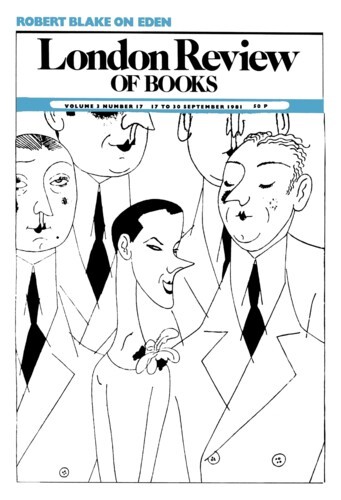Eurocommunism
Peter Sedgwick, 17 September 1981
As Philip Elliott and Philip Schlesinger argue in their admirable paper, ‘Eurocommunism: Their Word or Ours?’ (the most original contribution to the volume edited by David Childs), the term ‘Eurocommunism’ constitutes in the first place a resource in the ideological repertoire of certain commentators who are vehemently opposed to the arrival in power, for purposes of serious social transformation, of any Communist Party in the West. Coined originally in 1975 by Frane Barbieri, an anti-Communist Croat journalist working on a right-wing newspaper in Milan, it was intended to radiate an implication of Soviet expansionism (‘A Eurocommunist Europe would definitely mean the Sovietisation of Europe,’ as Barbieri later put it) rather than of a liberalised Communism sensitive to Western traditions. A good many analysts of the Western CPs have followed Barbieri’s usage in assimilating ‘Eurocommunism’ to the history of totalitarian duplicity manifested over the last fifty years by Moscow’s disciples in the West. More commonly, though, the term is used to indicate an expectation by the commentator that this or that Western CP (usually the Italian, often the Spanish, less frequently the French) is becoming more and more eligible to join the ensemble of governing parties whose coalition or alternation in office is a regular, predictable and (for non-socialist liberals) acceptable linchpin of the state structure in several European countries.

